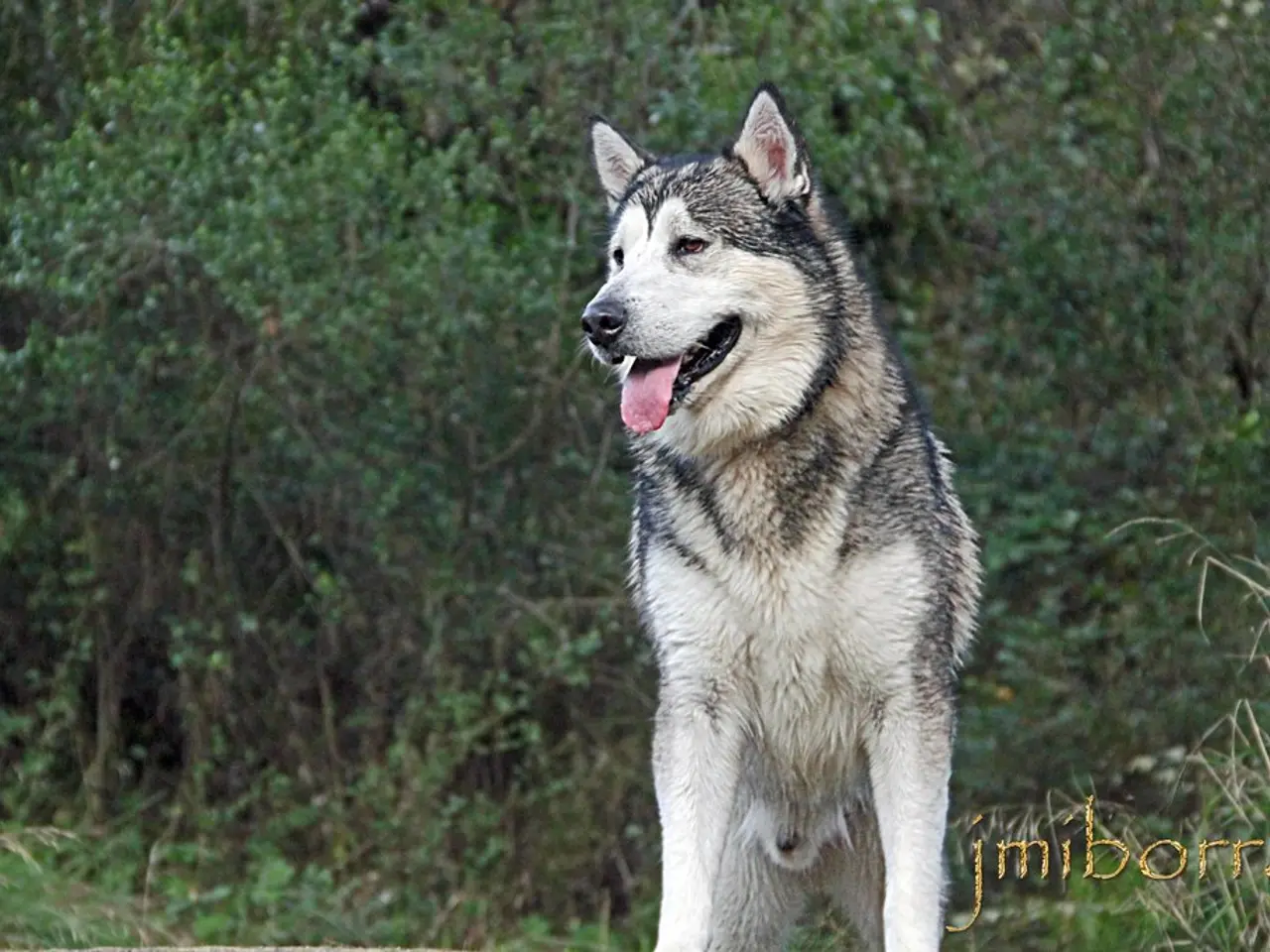Researchers enlist Australian rock band AC/DC to deter gray wolves from preying on livestock farms
In the Klamath Basin of Oregon, a unique solution is being employed to protect livestock from gray wolves. Biologists, in partnership with the United States Department of Agriculture, have introduced the use of drones equipped with loudspeakers and playing a variety of sounds to deter these predators.
The drones, costing around $20,000 each, are not without their drawbacks. They require professional training to operate and may not work optimally in wooded areas. However, their potential benefits are significant, as demonstrated by their successful deployment in the region.
The gray wolf population has exploded since their reintroduction in Idaho and Yellowstone National Park in the mid-1990s. There are now hundreds in Washington and Oregon, thousands near the Great Lakes, and dozens in northern California. This growth has led to concerns, particularly at the California-Oregon border, where gray wolves are known to kill dozens of cattle each year.
One ranch affected by this is the Rickert family's. Last year, 20 cows were killed on Jim and Mary Rickert's ranch, and 40 calves died at their Prather Ranch, either after getting snatched or lost due to miscarriages caused by wolf attacks, according to the Wall Street Journal.
In an effort to protect their livestock, the Rickerts and other ranchers have tried various methods, including electric fencing, wolf alarms, guard dogs, horseback patrols, trapping and relocating, and even killing the animals. However, the drone approach, while expensive, seems to be proving effective.
At the Rickert's ranch in Macdoel, the herd of wolves appeared more spread out and relaxed after the drones started making their rounds. This is supported by data from Oregon's Klamath Basin, where the number of cows killed by wolves decreased after the drones were deployed.
The drones are programmed to play a range of sounds, including AC/DC's 'Thunderstruck', to startle and deter the wolves. If 'Thunderstruck' or movie clips fail to work, the drone operator can improvise by yelling through a microphone or playing a different clip. Researchers hope that the variety of sounds will cause the wolves to flee, pointing to a 2022 study that demonstrated how a human voice can cause a stir amongst the pack.
One such improvisation is the heavy metal band Five Finger Death Punch's cover of Blue on Black. Another interesting choice is a scene from the 2019 film Marriage Story, which was specifically chosen to test whether wolves are deterred by human voices. The clip from Marriage Story includes both male and female voices.
However, Mary Rickert expresses concerns that the wolves may learn that the sounds are not a threat over time. If the drones prove successful and costs come down, ranchers may one day just have to ask the wolves to go away.
Oregon-based Paul Wolf, the USDA's southwest district supervisor, is a fan of the heavy metal band Five Finger Death Punch. He believes that the use of drones is a promising approach and could become a valuable tool for ranchers in the future.
As the use of drones continues to evolve, it remains to be seen how effective they will be in the long term. For now, they represent a novel and intriguing solution to a long-standing problem faced by ranchers in the region.
Read also:
- Nightly sweat episodes linked to GERD: Crucial insights explained
- Antitussives: List of Examples, Functions, Adverse Reactions, and Additional Details
- Asthma Diagnosis: Exploring FeNO Tests and Related Treatments
- Unfortunate Financial Disarray for a Family from California After an Expensive Emergency Room Visit with Their Burned Infant








